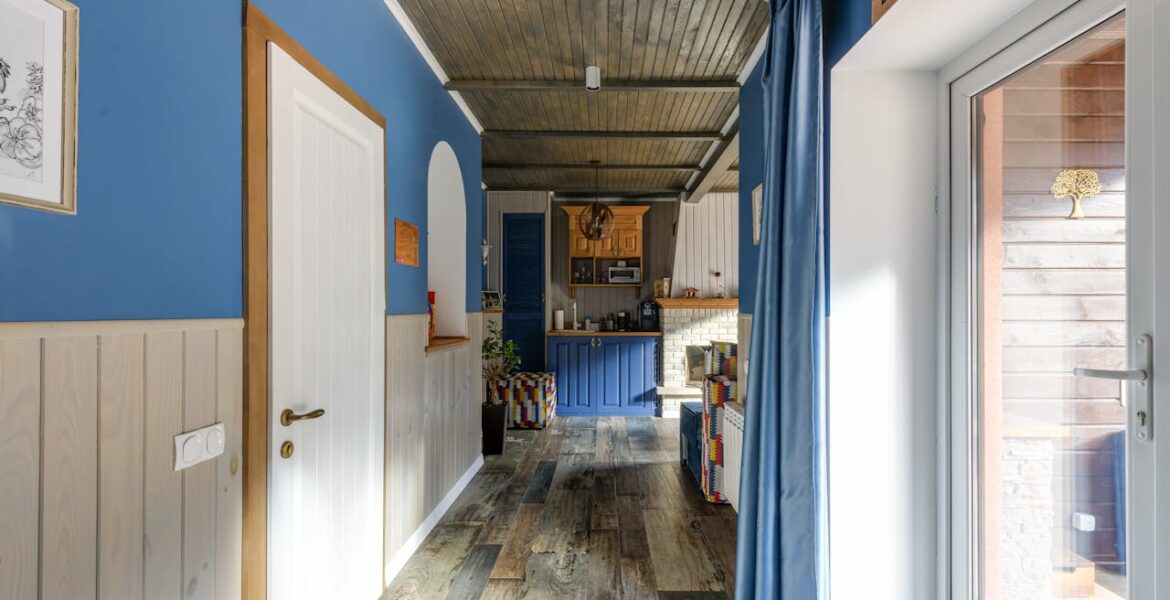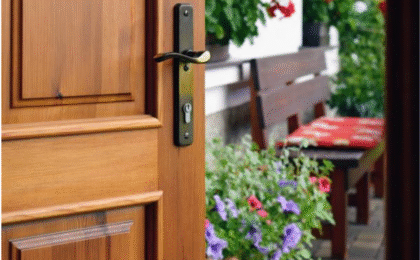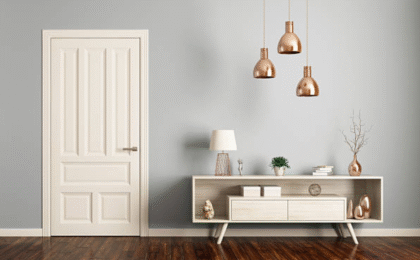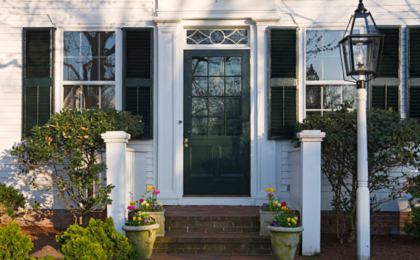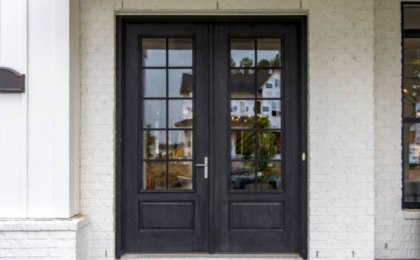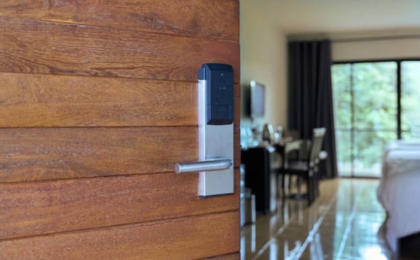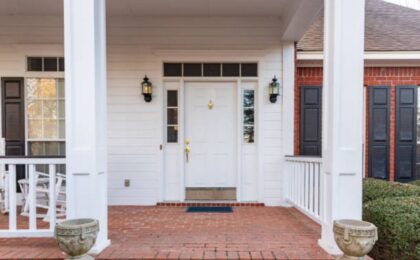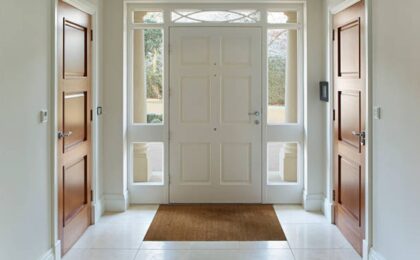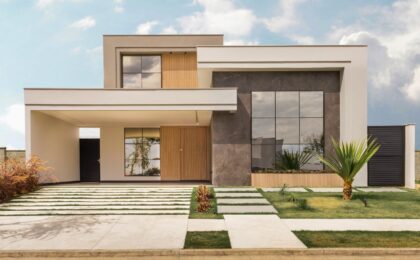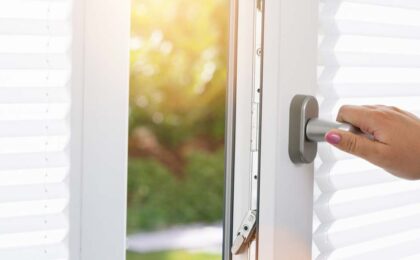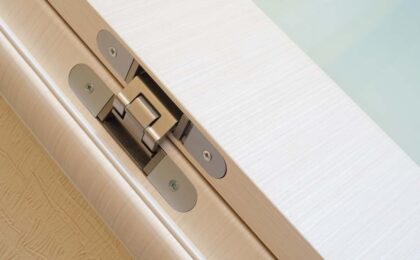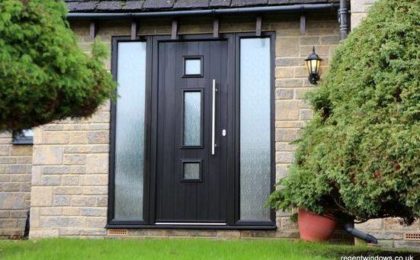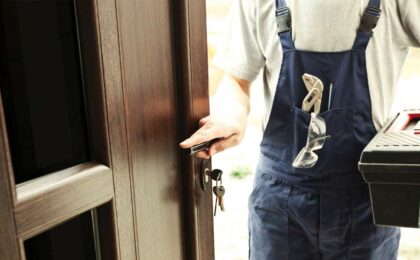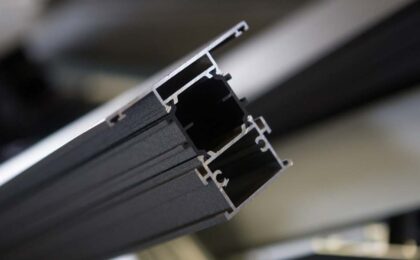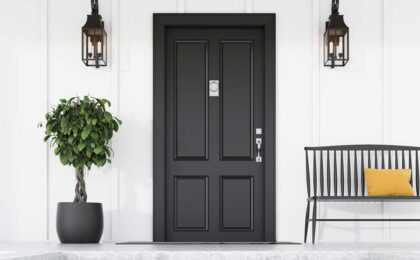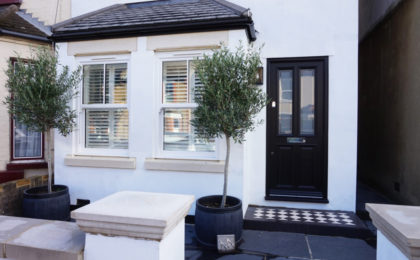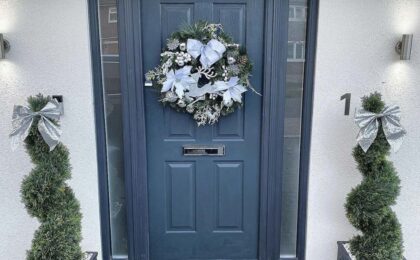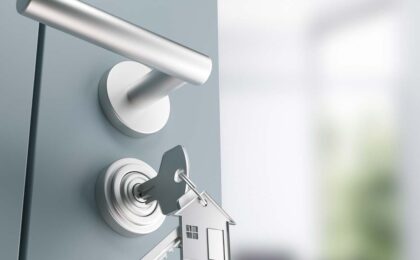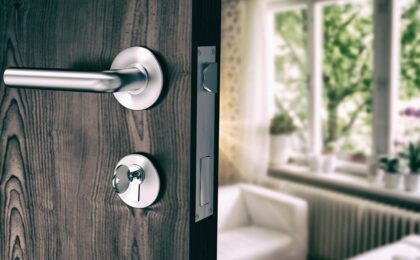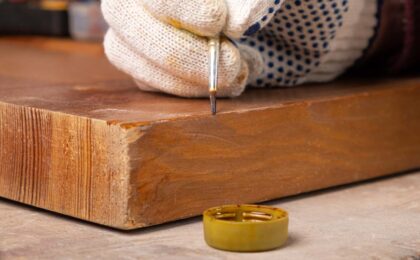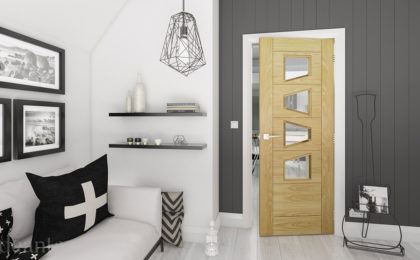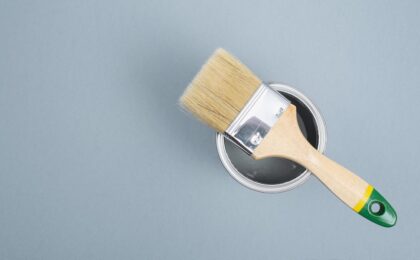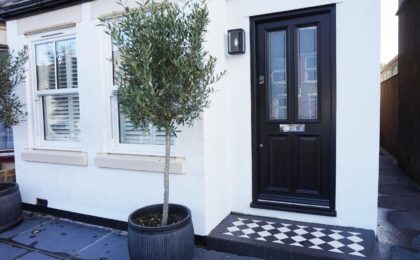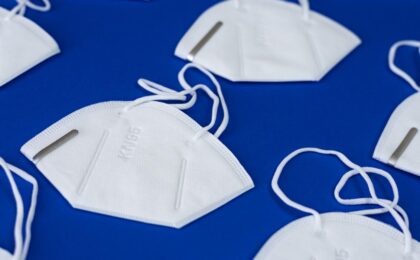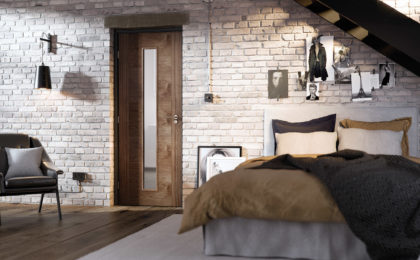Introduction: Choosing the Right Door Material
A front door is more than just an entry point—it’s a key design element, a security feature, and a barrier against the elements. When choosing between composite doors and wooden doors, homeowners often weigh factors like durability, appearance, insulation, and cost.
At Afforde Doors, we specialize in both types, helping customers make informed decisions based on their needs, preferences, and budget. In this blog, we’ll compare composite and wooden doors side by side to help you determine which option is right for your home.
What Are Composite Doors?
Composite doors are engineered from multiple materials—typically a solid timber or high-density foam core, encased in layers of uPVC and finished with a durable GRP (glass-reinforced plastic) skin. This multi-layered construction gives them enhanced performance and longevity.
Explore your options in our Composite Doors section.
What Are Wooden Doors?
Wooden doors, often made from hardwood like oak or softwood such as pine, offer timeless elegance and natural beauty. They’re often chosen for their traditional aesthetic and solid construction.
We offer a selection of customisable timber doors through the Design Your Door platform.
Composite vs Wooden Doors: Feature Comparison
Here’s a side-by-side comparison based on the most important factors for homeowners:
| Feature | Composite Doors | Wooden Doors |
| Durability | Highly durable, weather-resistant | Susceptible to warping, swelling |
| Security | Excellent – multi-point locks & GRP skin | Good – depends on locking system |
| Insulation | Superior – insulated foam/timber core | Moderate – may require additional sealing |
| Maintenance | Low – occasional wipe-down | High – needs regular painting or varnish |
| Aesthetics | Wide variety of modern/traditional styles | Classic wood look, can be painted/stained |
| Cost | Medium to high (but long-term value) | High – especially hardwood options |
| Lifespan | 30+ years | 15–25 years with maintenance |
1. Durability
Composite Doors
Built to withstand UK weather conditions, composite doors resist swelling, cracking, and warping. Their GRP skin adds extra protection against moisture and sun damage, making them ideal for front and back entrances.
Wooden Doors
Timber doors, especially hardwood, are strong but can be affected by environmental changes. Without consistent care, they may:
- Swell in humidity
- Crack in dry weather
- Rot if exposed to constant moisture
If durability is your top concern, composite doors are the clear winner.
2. Aesthetics and Design
Wooden Doors
Wooden doors offer unmatched natural beauty. Many homeowners love the traditional grain patterns and the ability to stain or paint the surface to match any decor.
However, over time, these finishes may fade or peel and need reapplication.
Composite Doors
Modern manufacturing means composite doors can replicate the appearance of real wood while offering dozens of other styles—from contemporary to Victorian. At Afforde Doors, our range includes:
- Wood-effect textures
- Heritage colours (e.g., Chartwell green, anthracite grey)
- Glazing and hardware options
Try out your ideal style in our Design Your Door tool.
3. Energy Efficiency & Insulation
Composite Doors
Thanks to their insulated core, composite doors are excellent at retaining heat. Many models achieve low U-values—meaning minimal heat escapes during winter. That can reduce energy bills and make your home more environmentally friendly.
Wooden Doors
Wood has natural insulating properties, but older or poorly sealed timber doors can let in drafts. To maintain insulation, regular resealing or weatherstripping may be required.
4. Maintenance
Composite Doors
Composite doors are almost maintenance-free. No painting, varnishing, or sanding required—just a quick clean with soapy water.
Wooden Doors
Wooden doors require regular maintenance:
- Repainting every few years
- Sealing against moisture
- Treating for rot or insects
If you’re looking for a “fit and forget” option, composite wins again.
5. Cost and Long-Term Value
Wooden Doors
High-quality hardwood doors can be expensive upfront. Add to that the cost of ongoing maintenance, and the total cost of ownership increases over time.
Composite Doors
While the initial cost of a composite door may be higher than basic timber, the savings in maintenance and energy efficiency make it a smarter long-term investment.
Get a free quote via our Contact Page to see pricing options tailored to your needs.
Who Should Choose a Composite Door?
Choose a composite door if you value:
- Long-term durability
- Enhanced insulation and energy savings
- Low maintenance
- A wide choice of styles and colours
Perfect for modern homes or high-traffic entryways.
Who Should Choose a Wooden Door?
Opt for a wooden door if you:
- Prefer authentic, traditional aesthetics
- Are willing to invest in maintenance
- Want a custom-carved or historically accurate finish
Great for period homes or heritage buildings.
Afforde Doors: Your Trusted Local Experts
Whether you lean towards a composite or wooden door, Afforde Doors offers:
- Decades of experience in South London and surrounding areas
- Professional installation and expert advice
- A wide range of bespoke door designs
- 10-year guarantees on products and workmanship
See real customer installations in our Gallery.
Conclusion: The Verdict
Both composite and wooden doors have their merits. If you’re seeking performance, insulation, and peace of mind, composite doors are often the better all-round option. But for traditional elegance and historical charm, wooden doors still hold strong appeal.
The right choice depends on your home’s needs, your aesthetic preferences, and your lifestyle.
Want expert guidance? Contact Afforde Doors today and let our team help you find the perfect fit.
 0208 643 3641
0208 643 3641